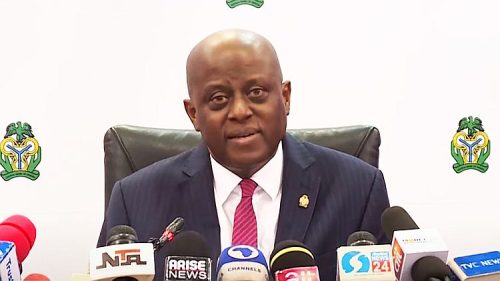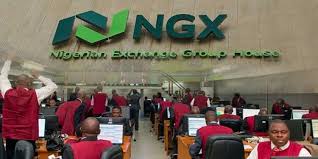2019 Uncertainty: Low interest on bonds, others scare investors

…Investors FX window records turnover of $744m in 3 days
…External reserves shed $244. 4m in one week
Uncertainty surrounding 2019 elections, coupled with security concerns in different parts of the country and low interest rates on Federal Government (FGN) bonds, have all been linked to reasons investors are holding back their investments in the Nigeria’s Foreign Exchange (Forex) Market, investigations by The Daily Times revealed.
For instance, Investors and Exporters (I&E) FX window on Monday 20, August, 2018, recorded transactions turnover of $71.14 million before the official closure of the forex market for Eid-el-Kabir celebratin holidays, and also declared the same traded value at the close of trading activities on Thursday 23, 2018 when the market reopened activities.
It, however, added a whopping $601.64 million turnover on the last trading day of the week, Friday 24, 2018, recording total transactions value of $743.92 in just three days trading in the I&E FX window.
But The Daily Times observed that this feat was achieved following the Central Bank of Nigeria (CBN) injection of $543.22 million into the interbank forex market between Thursday and Friday.
Reacting to this development in an exclusive chat with The Daily Times, on Sunday, President, Association of Bureau De Change Operators of Nigeria (ABCON), Alhaji Aminu Gwadabe, explained that investors are holding back their investment due to elections’ anxiety, among many other economic factors.
He said: “I think due to elections anxiety, security concerns, low interest rates on government bonds, investors are holding back their investments and with some disinvesting their investments.”
Speaking on the continuous injections into the forex market by the apex bank, Alhaji Gwadabe said: “The CBN is being proactive by their intervention to ensure continuous liquidity in the market and price stability.
“I believe it is temporary, as the market will revamp as soon as sanity is return in our politics and improved security. Nigeria still remains an important destination and market for foreign investment”.
Meanwhile, the CBN stepped up dollar sales on the last trading day of the week under review, after it auctioned the US and Chinese currencies the previous week in a bid to alleviate shortages and ease pressure on the naira.
The bank explained that it sold a total of $543.22 million on the interbank market and another 63.21 million yuan ($9.20 million) to settle letters of credit denominated in the Chinese currency via spot and forward contracts.
The Acting Director, Corporate Communication Department of the CBN, Mr. Isaac Okorafor, said: “The bank remains committed to maintaining the country’s external reserves to safeguard the international value of the naira.”
At Thursday’s trading, the bank offered the sum of $100,000,000 as wholesale interventions and allocated the sum of $55,000,000 to the Small and Medium Enterprises (SMEs) forex window.
Also, the invisibles window, which caters for customers requiring forex for Business and Personal Travel Allowances, tuition and medical fees, among others, received $55 million.
Similarly, on Friday, the bank injected the sum of $323.22 million into the interbank retail Secondary Market Intervention Sales and sold a total of CNY 63.21 million in the spot and short-tenored forwards, arising from bids received from authorised dealers.
He reiterated the bank commitment to maintaining the country’s external reserves to safeguard the international value of the Naira in line with the bank’s mandate.
According to him, the bank’s management of the forex market had entrenched transparency in the market and continued to strengthen the value of the naira against other major currencies of the world.
On the sale of Chinese Yuan (Renminbi), Mr. Okorafor disclosed that it was in line with the CBN guidelines, which stipulate that it would be for the payment of Renminbi denominated Letters of Credit for agriculture as well as raw materials.
While also noting that availability of the Chinese currency would ease pressure on the Nigerian foreign exchange market, he attributed the relative stability in the foreign exchange market to the intervention of the CBN as well as the sustained increase in crude oil prices in the international market.
He further pledged that the bank would ensure that the requirements of customers in all sectors of the foreign exchange market are guaranteed access to required foreign exchange.
Meanwhile, $1 exchanged for N360 at the Bureau de Change (BDC) segment of the foreign exchange market, while CNY 1 exchanged for N53.17.
However, dollar liquidity has been shrinking as a result of capital reversals after the US Central Bank started to raise interest rates this year.
The Daily Times checks, however, showed that the nation’s external reserves currently stood steady at $46.128 billion against $46.373 billion recorded on Friday 17, 2018, represented a decline of $244.441 million in one week.










